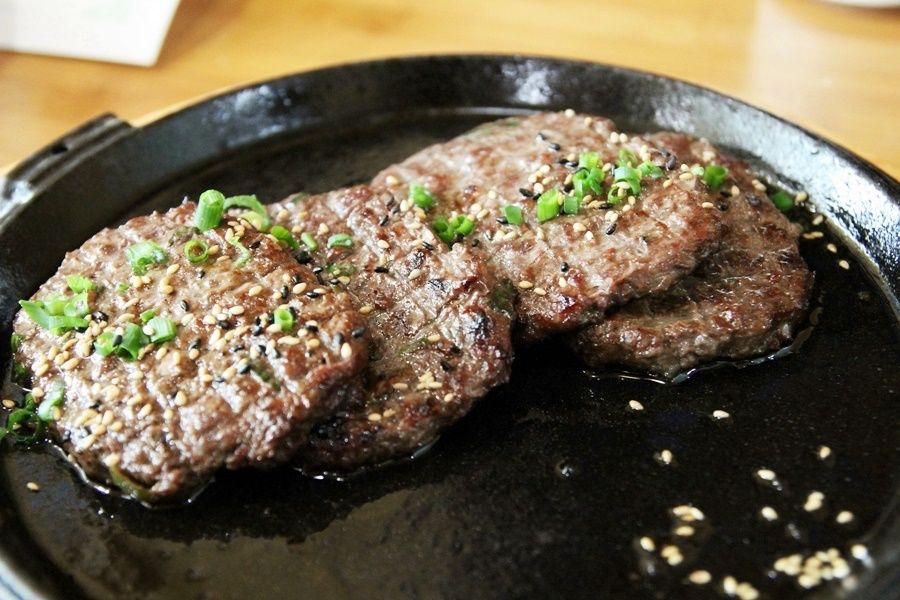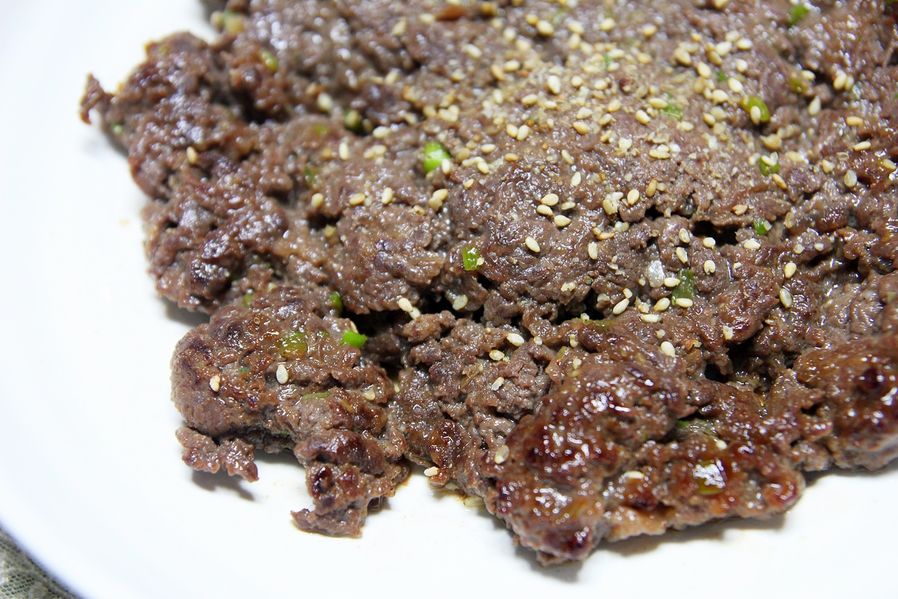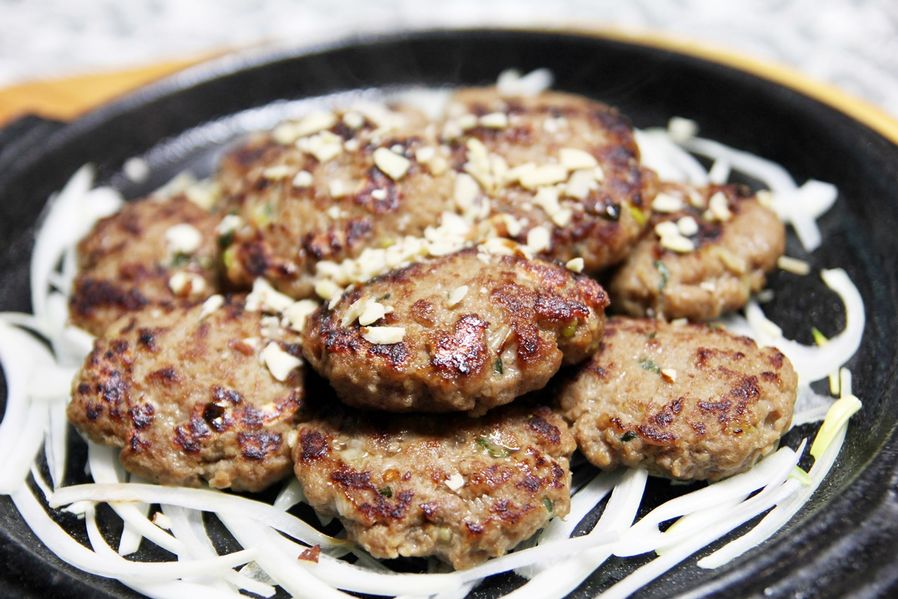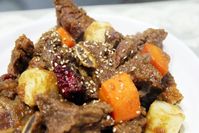1. Ingredients for Tteokgalbi
- Primary ingredients: Beef or pork
- Secondary ingredients: Basic seasoning (soy sauce and sugar) and spices (garlic and ginger)
2. Taste evaluation
-Spicy: :☆☆☆☆☆
-Salty: ★★★☆☆
-Sweet: ★★☆☆☆
-Sour: ☆☆☆☆☆
3. Introduction to Tteokgalbi
There’s a dish called Galbigui among Korean traditional cuisines. Galbi refers to beef or pork ribs seasoned with soy sauce and grilled with charcoal fire.
Ribs are meat with bones in it so it’s difficult to eat it with chopsticks or fork so you’d have to use your hands to eat them properly. It’s similar to barbecue (pork) ribs.
And Tteokgalbi is Korean traditional Galbigui that you can use chopsticks without getting all messy.
Tteokgalbi has an interesting history.
It’s been a bad behavior to eat food with hands in Korea from long long time ago.
So even when Galbigui was served on the table, the King could not use his hands due to his status.
So the ladies in the kitchen of the Palace started to make a patty of tender ground beef for the King and it’s called Tteokgalbi.
Since it’s basically beef patty, the King didn’t have to get his hands dirty and he could elegantly enjoy ribs using chopsticks.
So this Tteokgalbi was known as a court cuisine in the world but it was first cooked in Jeollanam-do, not in the Palace.

Canon EOS 550D | f/4.0 | iso 3200 | 2012:06:03 13:55:29 | Flash did not fire, compulsory flash mode | 39mm
Tteokgalbi is a patty of ground beef and pork marinated in Korean flavors of ginger, sugar, ginger and garlic and grilled with charcoal fire.
The way it’s ground, marinated and grilled is similar to how to make hamburger patties.
But it’s a little bit more complicated and it tastes way better with Korean traditional sauces added.
It could be a bit dry if you only use beef so you shouldn’t forget to mix greasy pork meat.
And it’s not just ground but it is beaten and kneaded to make it elastic so that it gets chewy when you bite it.
Plus, the seasoning includes Korean traditional sauce called soy sauce for deep flavor and sugar for sweet flavor. Korean cuisines that use meat have very unique flavors because they are cooked with garlic and ginger mostly.
Lastly, the meat batter is grilled on a gridiron so it has charcoal scent.
The sauce basically tastes like Bulgogi or Galbi. So if you’re satisfied with Bulgogi or Galbi during your trip in Korea, you should try this. It tastes similar but texture would be softer so I bet you would love it.
4. Kinds of Tteokgalbi
Basic recipe and taste is the same so there’s basically only one Tteokgalbi.
But you could make it with 100% beef or 100% pork or mix of two.
These days, people put rice cake or cheese inside the meat batter.

5. How to enjoy Tteokgalbi even more
Tteokgalbi is originated in Jeollanam-do. Jeollanam-do is VERY famous for Hanjeongsik(Korean table d’hote) that has so many dishes served on the table.
And Tteokgalbi is one of them.
So it is hard to eat it at a regular restaurant and you’ll see it as a main dish at Hanjeongsik restaurants.
So if you’re looking for restaurant just for Tteokgalbi, I suggest that you try ‘Namdo Hanjeongsik’ restaurant that serves Jeollanamdo style foods.
As it serves so many dishes, you’ll find it expensive. But you’ll see so various dishes served on a big table that you cannot reach sitting.
There will be more than 30 dishes including meats, seafood and vegetables that are grilled, fried, boiled or raw.
If you stay in Korea for a short time, it will be a good opportunity to taste all of Korean traditional foods in one meal.











